General Insurance Blogs, Articles & Updates by - Magma HDI
Have us call you
- RENEW YOUR POLICY
- BUY NEW POLICY

SUVs are the smart choice over sedans & hatchbacks in 2023!
Buying a car is often a challenging decision. One must decide between several car categories, brands, shapes and sizes, power, variants, and colour before making the final decision. Before determining the final vehicle, you must also consider your budget constraints, use, and available parking space.
Since you buy a car with a long-term perspective, choosing between buying an SUV (Sports utility vehicle), sedan, or hatchback is a big decision you must make wisely.
Out of the given variants, SUVs are gaining more demand in recent times. Let us see why SUVs are the smart choice over sedans and hatchbacks in 2023.
1. Spacious
SUVs are undoubtedly more spacious than most of the sedans and hatchbacks available. They offer more legroom and headroom for everyone, including passengers with a heavy or very tall build. SUVs provide a comfortable and spacious ride for the drivers with a good view of the road ahead because of their height. These vehicles also come with a huge boot space and enough storage options.
2. Off-roading
Rising incomes and higher spending capacity have sharply increased youngsters making frequent weekend trips and getaways. Gone are the days when we used to book train tickets for our pre-planned vacations. Taking your car for weekend holidays and short unplanned vacations is common these days.
This significant change in holiday mindset makes SUVs a smart choice over sedans and hatchbacks. They are perfect for off-roading and tough terrains.
3. Huge variety
The SUVs offer buyers a wide range of options, including interior and exterior features and transmission power. They provide customisable colour combinations, matching tyre rims, different grill and roof designs, etc. You can also buy a particular SUV model with a 5-seater or a 7-seater option depending on the seat configuration and model variant you are buying. Adding third-row seating can be convenient and advantageous for bigger families. High-end SUVs also come with huge sunroofs, which are missing in a sedan or a hatchback. This adds to their aesthetic appeal.
As far as transmission power is concerned, SUVs are clear winners. These SUVs are power-packed with big engines that provide a thrilling driving experience. Some of them come with 4x4 capability that can give you great control and power in rough terrains, especially during off-roading.
4. Lower fuel consumption at reasonable prices
Gone are the days when SUVs used to cost a bomb and were diesel-guzzlers. To tap the new-aged market for SUVs, car manufacturers have done their homework well and improved the fuel efficiency of present-day cars. Also, they have trimmed their pricing because of increasing demand, facilitating mass production and economies of scale. This has made the SUVs fairly priced in comparison to sedans and hatchbacks.
SUVs are the smart choice over sedans & hatchbacks in 2023. They offer a complete package of luxury, power, speed, fuel economy, and competitive pricing, making them a step ahead of the other car categories.
However, it is essential to remember that owning a car also comes with a responsibility to have a best car insurance in India. An active car insurance policy is mandatory by law. Also, it provides financial protection in the unfortunate event of an accident with your car, any damage to it, or even if it gets stolen. Always choose the best car insurance in India after doing adequate research.
Click HERE to buy the best car insurance in India.
Disclaimer: The information provided above is for illustrative purposes only. To get more details, please refer to policy wordings and prospectus before purchasing a policy.
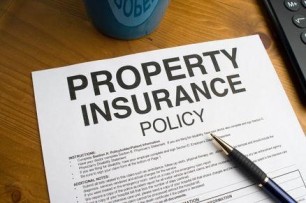
Let’s understand the different types of property insurance you can invest in based on your asset type
Building a property from scratch can be a time-taking and intimidating process. Whether commercial or private property, the construction cost can burn a hole in your pocket. This is precisely why property insurance becomes necessary to protect you, your family, and your assets from any unforeseen tragedies that might occur.
Property insurance provides cover for various misfortunes, including but not limited to fire, natural calamities, or robbery. However, choosing an insurance specific to your asset type is vital for the best coverage and benefits. This blog gives insight into the various types of property insurance available in the market based on your asset type.
1. Office insurance:
Office insurance is essential for all office premises, including public and private offices, call centres, etc. This insurance plan covers office owners against damages from unforeseen circumstances like fires, storms, lightning, hurricanes, cyclones, etc. This policy also covers other possible threats, such as the theft of office appliances.
2. Construction sites insurance:
Construction sites are places with a high probability of accidents. The misfortune of contractors is that the property remains their liability till the entire construction is completed and the property is handed over to someone. Whether it is due to bad weather or some water damage, it is a possibility that the building might collapse onto itself. It is essential to get construction site insurance to keep your assets secure against these occurrences.
3. Commercial insurance:
This insurance covers the policyholder from the losses incurred from destroying commercial properties such as warehouses, offices, factories, hotels, etc. Taking a suitable commercial insurance policy can be the best investment for business owners to safeguard themselves from the enormous losses faced by man-made or natural calamities.
4. Landlord insurance:
Landlord insurance is much like the homeowner’s insurance with one significant addition. The addition is the compensation of lost rental income, which is not covered by any other policy.
5. Renter’s insurance:
Tenants are usually in a dilemma regarding the safety of their belongings in rented accommodation. If their prized possessions are stolen, or there is some natural calamity that results in the tenant incurring losses, there is no way that the homeowner will pay for it.
So, the best option for tenants is to get insurance that covers all their belongings. Renter’s insurance is very similar to the homeowner insurance policy. One significant difference is, however, that this policy is exclusively meant to recover financial losses sustained by the policyholder if their belongings (can include clothes, jewellery, and appliances around the house) are damaged because of man-made or natural calamities.
6. Homeowners insurance:
Homeowners insurance or HOME INSURANCE is the most widely acquired type of property insurance. This is for a good reason. A home is a significant investment, and it is imperative to be secure against the various misfortunes that might befall it.
An appropriate home insurance covers all the financial losses the homeowner might incur in the event of any significant damage due to an accident or mishaps like burglary. Additionally, it also covers any possessions that have been destroyed in the mishap.
Our home is the greatest property asset, and safeguarding it from potential damages should be our primary objective. Having the most suitable home insurance is a surefire way of protecting from financial mishaps and adding the safety net of damage coverage.
Property insurance gives the property owner security and credibility, which is important for peace of mind and financial safety. Thoroughly researching the best insurance policy is essential to have the optimum coverage for your assets.
Click HERE to know more about home insurance.
Disclaimer: The information provided above is for illustrative purposes only. To get more details, please refer to policy wordings and prospectus before purchasing a policy.
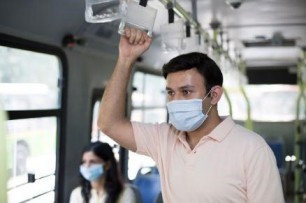
Why is public transport the best way to travel and explore places
Exploring the novelties and embarking on new adventures is what travelling is all about. From dingy roadside motels to premium five-star hotels, travel experiences make you more confident and better prepared for everything. To some people, it is a much-needed respite from the mundane routine of everyday life; for others, it is a way of life. Some people believe in setting aside a part of their earnings for annual family trips, while others earn to travel. Common among all these lifestyle choices is the desire to explore newness and the different versions of the planet.
There are multiple ways in which you can explore a city. You can accompany a tour group, walk around, and indulge in local life. But, in this article, we will discuss why public transport is the best way for you to enjoy your vacation.
1. Closer to the local life:
Cabs and rentals will ensure an easy commute, but if you want to indulge in the lifestyle of the locals, using public transport is a must. The locals frequently use public transport to carry out their day-to-day chores. Interacting with them will not only help you gain a better insight into the culture of the place, but it will also help you figure out where the untouched locations are. Many local restaurants and establishments are unexplored by the tourism industry. Local knowledge about these will help you explore the unexplored.
2. Cheaper:
People often complain about being scammed by taxi services and other car rentals. However, with public transport, you can avoid being scammed altogether. Since locals frequent this mode of transportation, they can't charge you extra. Some governments facilitate subsidised public transport rates, so the overall cost of your daily commute becomes considerably inexpensive.
3. Time to relax:
If you intend to book a car for yourself, be prepared to stress out about directions constantly. You might also be stuck in long traffic jams if you decide on exploring the city. Opt for public transport like trains to escape heavy traffic and the tiresome drive. During your commute, you can either look out of the window and enjoy the views or catch a nap before reaching your next location. This small break will help you be rejuvenated for the next part of your trip.
4. Personal health:
Public transport is a boon for you if you are a fitness enthusiast and cannot squeeze in the time for your workout in your jam-packed itinerary. Opting for public transport indicates that you will need to walk between stops, stations, or ports, depending upon the location and the type of transport. Not only does it prompt you to walk more, but it also helps you build an appetite so that you can eat more of the local cuisines guilt-free.
5. Responsible towards environment:
Public transport saves a considerable amount of fuel as compared to personal vehicles. The stark increase in carbon dioxide emissions has resulted in a rapid rise in global temperatures. Opting for public transport is a small contribution you can make to the environment and a better future.
These are a few reasons why public transport is the best option for you while travelling. Interact with the locals and explore the city's novelties while taking public transport. Remember that no trip is complete without travel insurance. Any risks you can incur during your vacation, including theft, financial losses, injuries, etc., will be taken care of by an insurance policy. To protect yourself and your family against such expenses, do not forget to buy insurance policy online. You can compare multiple policies, analyse their benefits and premiums, and choose from several online options.
Click HERE to buy insurance policy online.
Disclaimer: The information provided above is for illustrative purposes only. To get more details, please refer to policy wordings and prospectus before purchasing a policy.

Invest in the fire and special perils policies for advanced protection of your property
Building a property from zero is a daunting process. It takes time, effort, and a high budget to construct your dream home or your dream office. Despite all this hard work, there are times when misfortune strikes unexpectedly. It can be a short circuit caused by lightning, a storm, flood, or cyclone that might drown your premises.
You won’t want your property to fall prey to such casualties. Despite taking all precautions and looking after safety measures, still, you cannot avoid the probability of mishaps. As rightly said, we must always pray for the best but prepare for the worst.
So, it is wise to be smartly insured against any such happenings. A policy that covers most misfortunes, either natural or man-made, is the Fire and Special Perils Policy.
What is the fire and special perils policy?
A fire and special perils policy is a contract where the insurer secures you and your property from any damages that may occur due to natural calamities such as storms, cyclones, and resulting floods, lightning, or man-made perils such as riots, strikes, or malicious damages.
Even though adversities like these may not strike you as something you should pay immediate attention to, it’s best to get insured before the situation gets out of hand. This will give you and your loved ones some much-needed peace of mind.
Key features of this policy:
This policy usually covers several contingencies, including
1. Fire hazard: Your property and possessions are insured if a fire breaks out.
2. Lightning: If any damage is caused by lightning impact
3. Explosion/Implosion: Your property is insured against an unforeseen explosion. If the building collapses inwards due to the failure of a system, that is also insured within this policy.
4. Human hazards like riots, strikes, and malicious damage: In case of these man-made hazards, your possessions are insured against visible physical damage.
5. Natural calamities: No one can accurately predict precisely when a natural disaster will occur. So, it gives great peace when your property is secured against these unforeseen calamities like storms, cyclones, typhoons, tempests, etc. This policy also insures you and your loved ones against floods, and landslides, including repairing your property.
6. Accidental mishaps: The repair charges are covered in the rare chance of accidental damages like the bursting of an automatic sprinkler installation.
7. Missile testing operations
8. Groundworks and other excavations
Some of the add-ons you can opt for in this policy are
1. Debris removal
2. Destruction in the event of a forest fire
3. Loss of rent
Features that are not covered:
Knowing the pros and cons of each policy before purchasing it is essential. There are a few instances where this insurance policy does not cover damage and loss to your property. These are
1. Destruction and damage caused by wars, being invaded by a foreign entity, civil war, rebellions, or in the case of military or usurped power
2. Nuclear war and allied risks
3. Pollution and contamination
4. Damages incurred due to volcanic eruptions or earthquakes
5. Damages incurred due to the loss of unclaimed precious stones or works of art
6. Acts of terrorism or militant activities
It takes a lifetime to build assets like property, so it doesn’t come as a surprise that one would want to get it insured against unforeseen misfortunes. The Fire and special perils policy are one of the most popular insurance policies chosen by homeowners, SME’s and big corporations alike. This holistic plan can protect you and your loved ones and also comes with a lot of flexibility.
You may even invest in the best HOME INSURANCE IN INDIA to protect the content of your home from incidents like theft or damage to the building. Investments that reap fruitful outcomes go a long way in safeguarding your dreams.
Click HERE to know more about the best home insurance in India.
Disclaimer: The information provided above is for illustrative purposes only. To get more details, please refer to policy wordings and prospectus before purchasing a policy.
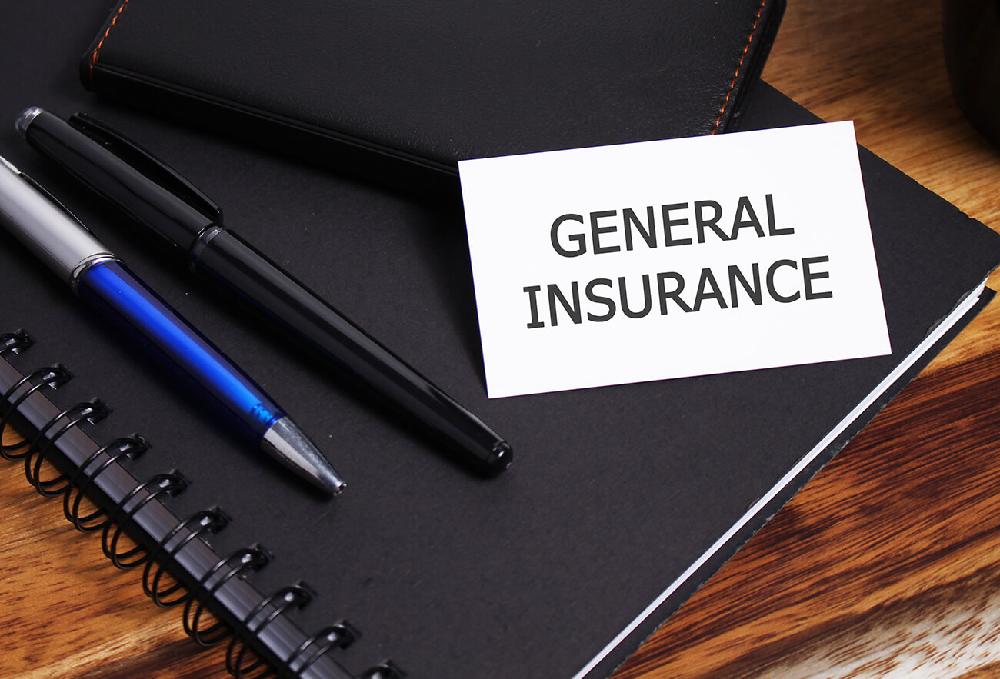
What are the different types of general insurance policies?
In modern times, uncertainty has become a part and parcel of life. You can take as many precautions as possible but certain unwanted situations can always take place. These situations can be related to your health, your life, or your possessions like car, mobile, house etc. Due to any man-made situations or natural disasters, you can suffer losses on various accounts. In such situations, an insurance policy is something that can reimburse you for the losses suffered to a great extent and reduce the monetary damage.
Although insurance policies cannot prevent the happening of any unfortunate incident, they can help minimize losses suffered due to such incidents. Irrespective of the fact whether you decide to Buy Insurance Policy Online or offline, having an active insurance policy is a must.
Insurance policies are available in various types and categories. The two main categories are life policies and non-life policies. The life policies are the ones that deal with ‘life’ of an individual. On the other hand, the non-life policies are the ones which deal with all other types of mishaps that can occur. These non-life policies are also called general insurance policies.
What are the different types of general insurance policies?
Following are the different types of general insurance policies that are available, whether you buy insurance policy online or offline: -
- Health insurance covers all the expenses related to a person’s health when he/she gets hospitalized due to problems like any illness or any accident. It also covers situations like an annual health checkup, daycare procedure, psychiatric support and other health-related situations. Specific extensions of these insurance policies cover critical illness, maternity-related situations and organ donation. The premium of a health insurance policy is based on the individual’s age, history of the health, any genetic disorders and other cases like that.
- Travel insurance losses suffered while travelling to domestic or international locations are covered by the travel insurance policy. Situations like loss of baggage or passport, hijacking, medical expenses and other travel-related situations that require settlement are covered. Any accidental deaths caused during the travel are also compensated by the insurance policy. Some insurance companies also allow the travel insurance policy to be free of any deductibles. In this situation, the company covers all the expenses.
- Motor insurance has further two types of policies that involve comprehensive and third-party policies. The third-party policy involves the settlement in situations that involve any damage caused to another vehicle or person by your vehicle. The accidental expenses caused by your vehicle are settled by the insurance company. Comprehensive policies also cover the damages caused to your vehicle. It is a policy which encompasses the features of third party policy in it.
- Marine insurance is useful in reimbursing of losses cause to goods that are being transported through cargo ships to national as well as international locations.
- Commercial insurance policies deal with the business-related insurances that involve loss of property, professional liability, marine damage and other such expenses.
- Home insurance the insurance covers the losses related to theft, fire, or other damages caused to your home.
- In case you are interested in buying a general policy, you can do so by contacting any insurance company, or you can even buy insurance policy online. The quotations will be provided to you in both online and offline cases. You can look at it and in case it suits you, you can purchase the respective insurance policy. You must make the premium payment on time to keep the policy active and enjoy its coverage. Any delay in the premium payment beyond the grace period would render the policy ineffective, exposing you to various liabilities and losses.

Why should we follow the traffic signals while driving vehicles?
Traffic rules are meant for your safety, and there should be no arguments against why you should ensure to follow traffic rules while driving or walking on roads. Traffic rules help protect you on the road as well as everyone else driving on the same road. People should know about the basic traffic signs and rules that should be followed while driving any vehicle on roads. People driving bigger vehicles need to be extra careful because of the multiple blind spots that are created by the big size of the vehicle.
Moreover, someone behind any bigger vehicle should also understand that there is limited visibility of the driver, and they should not try to come in the way of such vehicles which can be dangerous for both parties. Prevention is always better than cure but in case any mishappening occurs due to mistakes from either side, there are insurance providers who provide personal accident insurance as well. You can buy Personal Accident Insurance Online from any reputed insurance provider after properly comparing the benefits of all the different policies that are provided by different insurance providers.
Need for following road traffic rules
Government statistics show that more than 400 road accidents occur in India almost every day due to the negligence of the people driving and walking on roads. In many of these accidents, people get injured and in most of them, there are deaths of people involved also while some may escape unhurt. But, if traffic violations had not taken place and people were following the road traffic signs properly, there is a very high chance that the number of accidents will be very less than the current rate of 400 accidents per day.
Such traffic crashes and accidents also affect the Gross Domestic Product of the country, and the impact can be as high as 3% of the GDP. The traffic signs put on roads by the government for the people work to ensure that order ensues on the roads and signs are followed by the people on the roads. These traffic signs if followed properly will greatly help in reducing the accidents that occur daily on Indian roads.
Misconceptions amongst the people are aggravating the problem
There is a large population of India that do not follow traffic rules and is habitual of violating the rules, either due to no knowledge of the signs or even due to some misconceptions. There is a long time misconception in Indian public that it is not necessary to follow traffic signals after 10 PM and you see people racing past signals after 10 PM. This is completely false but people still following such myths is also the reason for many high-speed accidents occurring at night on city roads. People also do not follow one-way road rules and come with their vehicles on the road from either direction. They believe that reversing their vehicle on a one-way road is correct even if they are walking in the opposite direction, but this is completely wrong. You can reverse your vehicle on a one-way road, but you should be moving in the direction in which the road allows movement. These were examples of some common misconceptions among the people in India but there are more, and these myths lead to an increase in accidents on the roads.
It is necessary to train the people what different traffic signs and signals mean and what you should do when you see one of these signs. Campaigns should be undertaken by the government to train people on how to drive their vehicles properly on the road without causing a nuisance to others. Additionally, one must purchase personal accident insurance online or offline, as preferable, to get protection in case of such incidents.
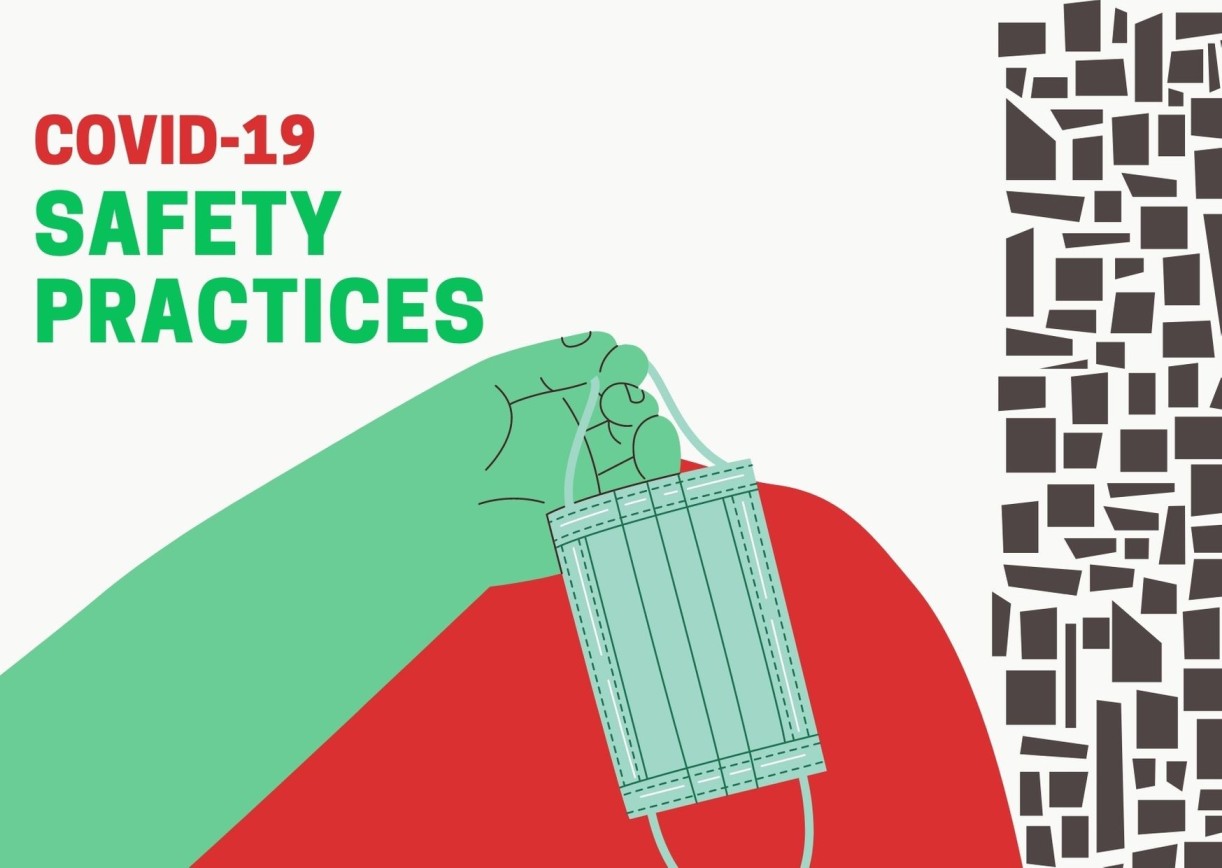
These 5 practices can help you stay protected from Covid-19
In these difficult and devastating times, we all want to keep ourselves protected from this deadly pandemic. The entire human race is praying to be safe and establish a Covid-free atmosphere in the world. But how can we make this happen? What measures can truly safeguard us from getting infected by this highly contagious disease?
1. MASK- A dependable shield
Wearing a proper mask should be our utmost priority whenever we move out of our houses or go to crowded places. Mask is the first wall of defence against the Coronavirus. The majority of the chances of getting infected are narrowed down if we wear appropriate masks suggested by our government and health authorities. But just wearing the masks is not sufficient; the mask should cover your face and nose properly. Only good quality masks should be used, cloth masks should be regularly washed, and use-and-throw masks should not be used more than twice. Masks should be handled only by using elastic strands. Avoid using masks that have filters installed on them, but use masks that are comfortable and easy to breathe. Remember, Mask ON....Life ON!
2. Maintain a safe distance today to have a safer tomorrow
Another crucial and effective preventive measure is maintaining a social distance of at least six feet when you are around other people. Avoiding close contact with people can nullify the chances of getting infected to larger extents. Even when you are at home, it is recommended to avoid getting close to the sick person or with low immunity, especially aged members of your house. Today this physical distance is a necessity to ensure the safety of you and also the people around you.
3. Safety is in your HANDS. Literally!
Our hands touch many things and surfaces daily, which means they are massively exposed to the virus. Later these hands can act as a carrier and can make our bodies vulnerable to the infection. So, we must wash our hands regularly and properly. Hands should be either washed by using soap and water or using hand sanitizers with a minimum of 70% alcohol. Especially when you are in a public place, carry a sanitizer with you always and use it whenever you touch an unknown surface. Avoid touching your nose, eyes, face, and mouth with unclean hands. Also, maintain personal hygiene and even keep your surroundings disinfected.
4. Vaccine is a must
Responsibly participate in the vaccination drive and get yourself vaccinated with both the doses of the vaccine. Also, encourage others to get themselves vaccinated. The vaccine is a game-changer during these challenging times, so be responsible and take the shot whenever available.
5. Your Health, Your Priority
In this depressing environment, it is wise to understand that staying positive can flush all the negativity and restore happiness. Every human is a superhero during these crucial times. Together we all can do wonders, follow these guidelines, and realize the importance of Covid appropriate behaviour and be a life saviour.
Lastly, in this extreme situation, closely monitor your health for any unexpected changes in your body. Never underestimate any symptoms, stay alert and consult your doctor in case you feel something odd. It is suggested to have an appropriate
health insurance
policy that acts as a rescuer for immediate cashless hospitalization and huge Covid related hospital expenses. You can buy Health Insurance Online in a contactless manner from a trusted source to ensure your health cover.
Let's make this difficult period a little lighter, both emotionally and mentally, and win this battle.
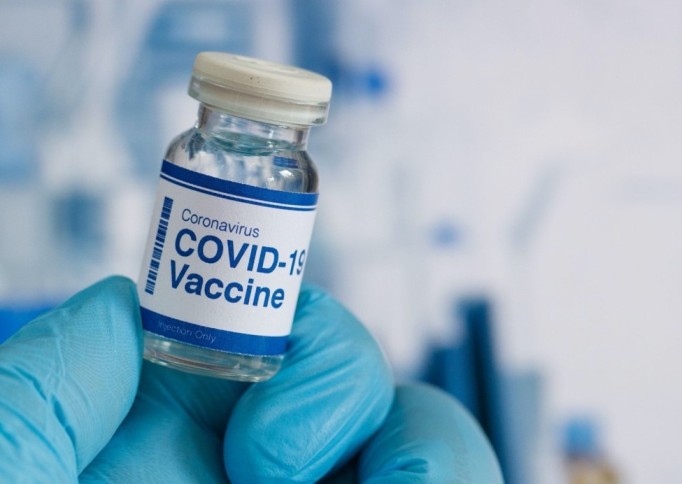
Getting the Covid vaccine? Here's what you need to know
Amidst this pandemic, the human race is praying desperately for the cure. After so many efforts, we are finally blessed to have a vaccine now. It is indeed significant that it could be made in such a short period; all credit to our advanced medical researchers.
Want to get the COVID-19 vaccine? Please check this step-wise procedure.
The first step to get vaccinated is to register yourself on the CoWin portal and get an appointment for the first dose of the vaccine. CoWin is a trusted platform designed by the government, which runs both independently and also on the Arogya Setu app. Avoid using any other portal or application for registering yourself as a lot of fraudulent portals are being run to fool people. Know exactly where the vaccine drives are rolling in your vicinity.
Also, it is important to know the difference between various doses, their side effects, and which one is suitable for you to take. Do this with the help of a physician or a doctor before taking your shot of vaccine.
Setting up your mind to get vaccinated without getting afraid is important. Vaccination is nothing but immunization!
What is to be done before getting vaccinated?
Register yourself on the government-suggested website and get an appointment for a particular day. As your day of vaccination is close, take adequate rest. Have enough sleep of 7-8 hours and avoid exhausting yourself. Also, if you are on some other medication or if you are on steroids or any immunosuppression, then consult your doctor.
For the safer side, if you feel any symptoms like cough, fever, cold, sore throat, etc. on or before the day of vaccination, then seek medical help. Consume a balanced diet to boost your immune system and to maintain your energy level. Stay hydrated, it is the key to stay calm inside out.
What to do when ‘it is the day’?
On the day of your shot, do a safety check. Ensure you are wearing a proper face mask and sanitize your hands properly. If possible, wear hand gloves too to maintain zero contact. Foremost, wear loose clothes when you are going to the vaccination centre because the vaccination spot is on the upper arm, giving easy access to the vaccinator.
The most important thing is to stay positive. Don't get anxious, take slow deep breaths. Think of a positive outcome – this shot is going to be a shield for you and others around you.
And, please carry your photo ID card mentioned in your appointment details for vaccination.
What are the steps taken after getting vaccinated?
The primary step is to monitor yourself. If there are any side effects, they will appear within 30 minutes after getting your vaccine shot. There are mild and common effects like swelling, redness on the arm, dizziness, headache, chills or mild fever, joint or muscle ache, etc. Remember that these side effects will subside within a few days.
If you feel severe symptoms like vomiting, fainting, allergic reactions, then seek medical help immediately. Avoid consuming painkillers or any other medication unless you consult a doctor about it.
The second dose is equally essential, so don't miss that. There should be a fair gap of 4-12 weeks between both the doses.
And most important of all is, even after getting vaccinated, don't stop taking precautions in day-to-day life. Continue wearing your masks, do sanitize properly and maintain social distancing.
Also, considering the risk pandemic brought, if you already don't have an existing health insurance, it is time to purchase a new
health insurance plan
.You can buy Health Insurance Online to get coverage to protect your family from sudden illnesses, hospitalization and medical expenses.
Let us be responsible, and let us all protect one another and help our community get through these pandemic hard times. Stay Safe, Get Vaccinated.


